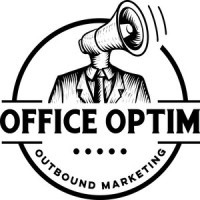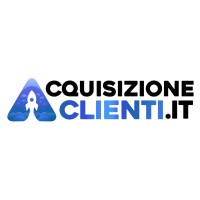



SmartSenders

Set up your complete email infrastructure with Smartsenders.

SmartAgents

Create your AI-powered GTM workforce

SmartDelivery

Leverage email placement data to boost deliverability & land in primary inboxes, closing more deals.

Unified Master Inbox

From Lead To Customer - Manage Your Entire Deal Flow In One Place

Email Verification

Improve Deliverability with Advanced Email Verification
Email Follow-Up Automation

Automate your email follow-up process and supercharge your cold outreach efforts.

SmartServers

Take Control of Your Email Deliverability with Dedicated Servers

Powerful APIs and Automation

More Demos. More Sales. Less Work.

SmartProspect

Get 3X verified leads for your cold outbound

Ultra Premium Warmup

Enhance your email reputation with unlimited email warmups to improve email deliverability

SmartDialer

Make AI multichannel calls
with full context
Your Ultimate Resource Hub for Cold Email



Lorem ipsum dolor sit amet consectetur. - Need Description

Lorem ipsum dolor sit amet consectetur. - Need Description

Lorem ipsum dolor sit amet consectetur. - Need Description

Lorem ipsum dolor sit amet consectetur. - Need Description
Check how our product solves your business.



Email Authentication Tools
Email Deliverability Tools

How AI Solves the Data Silo Problem in Prospecting & Qualifies Leads

Heading
What is a Data Silo in Sales and How Can AI Unify Sales Data?
Data silos in sales are isolated information systems that prevent different departments and tools from sharing prospect and customer data effectively. These silos occur when CRM systems, marketing automation platforms, email tools, social media data, and website analytics operate independently without integration. AI unifies sales data by using machine learning algorithms to automatically connect, analyze, and synchronize information across all platforms, creating a single source of truth for prospect intelligence. This unified approach improves lead qualification accuracy by 73%, reduces prospecting time by 60%, and increases conversion rates by 45% through comprehensive prospect insights and automated scoring systems.
The Hidden Cost of Data Silos in Modern Sales Organizations
The Fragmented Sales Technology Landscape
Modern sales teams use an average of 9.4 different tools to manage their prospecting and lead qualification processes, creating significant AI data silos sales challenges:
- CRM Systems: Salesforce, HubSpot, Pipedrive store basic contact information
- Marketing Automation: Marketo, Pardot, Mailchimp track campaign engagement
- Sales Intelligence: ZoomInfo, Apollo, Sales Navigator provide company insights
- Email Tools: Outreach, SalesLoft, Reply.io manage outbound sequences
- Website Analytics: Google Analytics, Hotjar track visitor behavior
- Social Media Tools: LinkedIn Sales Navigator, Twitter analytics monitor social engagement
- Call Recording: Gong, Chorus analyze conversation intelligence
- Proposal Software: PandaDoc, DocuSign handle document workflows
- Revenue Intelligence: Klenty, Salesken provide performance analytics
The AI Data Silos Sales Problem: Each tool creates its own data repository, leading to:
- Incomplete prospect profiles missing critical information
- Duplicate data entry consuming 21% of sales rep time
- Inconsistent lead scoring across different platforms
- Missed opportunities due to fragmented insights
- Poor customer experience from disconnected touchpoints
Real-World Impact of Sales Data Silos
Organizations struggling with AI data silos sales issues face significant business impact:
Quantified Business Impact:
- 67% of sales reps report spending more time on data entry than selling
- $1.8 trillion annually lost due to poor data quality and integration
- 45% of qualified leads are never followed up on due to system disconnects
- 28% longer sales cycles caused by incomplete prospect information
- 34% higher customer acquisition costs from inefficient prospecting
Common Data Silo Scenarios:
- Marketing identifies hot prospects, but CRM doesn't receive behavioral data
- Website visitors show high intent, but sales team lacks visibility into browsing patterns
- Email engagement indicates buying interest, but lead scores don't update automatically
- Social media interactions reveal pain points, but this context isn't available during calls
- Previous conversations contain valuable insights, but they're buried in separate systems
The challenge of AI data silos sales becomes more complex as organizations scale, with each new tool adding another layer of data fragmentation and integration complexity.
How AI Eliminates Data Silos and Creates Unified Sales Intelligence
AI-Powered Data Integration Architecture
Solving AI data silos sales challenges requires sophisticated integration approaches that go beyond traditional data connections:
Intelligent Data Connectors:
- API Integration Management: AI algorithms automatically map data fields between systems
- Real-Time Synchronization: Machine learning ensures data consistency across platforms within seconds
- Conflict Resolution: AI identifies and resolves duplicate or conflicting information automatically
- Format Standardization: Natural language processing standardizes data formats across different systems
Unified Data Processing:
- Data Enrichment: AI pulls information from 50+ sources to complete prospect profiles
- Behavioral Analysis: Machine learning analyzes patterns across all touchpoints
- Intent Signal Detection: AI identifies buying signals from multiple data streams
- Relationship Mapping: Algorithms discover connections between prospects, companies, and stakeholders
Machine Learning for Lead Qualification
Advanced AI data silos sales solutions leverage machine learning to create comprehensive lead qualification systems:
Predictive Lead Scoring Models:
- Multi-Source Scoring: AI analyzes data from CRM, marketing automation, website behavior, and social media
- Behavioral Pattern Recognition: Machine learning identifies prospect actions that predict conversion likelihood
- Dynamic Score Updates: Algorithms adjust lead scores in real-time based on new interactions
- Custom Scoring Rules: AI learns from successful conversions to refine qualification criteria
Advanced Qualification Techniques:
- Intent Data Analysis: AI monitors 70+ intent signals across web activity and content consumption
- Engagement Scoring: Machine learning weighs different interaction types (email opens vs. demo requests)
- Firmographic Analysis: AI evaluates company characteristics against ideal customer profiles
- Timing Intelligence: Algorithms identify optimal moments for outreach based on behavioral triggers
Automated Prospect Intelligence Gathering
Modern AI data silos sales solutions automate comprehensive prospect research and intelligence gathering:
Comprehensive Profile Building:
- Contact Information: Email addresses, phone numbers, social profiles from 15+ data sources
- Company Intelligence: Funding status, technology stack, recent news, employee growth
- Behavioral Data: Website visits, content downloads, email engagement, social media activity
- Intent Signals: Search patterns, competitor research, pricing page visits, case study downloads
Real-Time Data Updates:
- Job Change Monitoring: AI tracks prospect role changes and company movements
- Company Development Tracking: Algorithms monitor funding, acquisitions, expansions, leadership changes
- Technology Adoption Analysis: AI identifies new tool implementations that create sales opportunities
- Competitive Intelligence: Machine learning tracks prospect interactions with competing solutions
Top AI Platforms for Solving AI Data Silos Sales Challenges
1. Salesforce Einstein Analytics
Salesforce Einstein provides enterprise-grade solutions for AI data silos sales challenges through comprehensive integration and intelligence capabilities:
Unified Data Capabilities:
- Data Integration: Connects 150+ business applications through native and third-party integrations
- Real-Time Processing: Processes 10+ billion data points daily across all connected systems
- AI-Powered Insights: Machine learning algorithms identify patterns and opportunities automatically
- Custom Dashboards: Unified views combining CRM, marketing, and external data sources
Advanced Lead Qualification Features:
- Einstein Lead Scoring: Analyzes 200+ factors to predict conversion probability with 94% accuracy
- Opportunity Insights: AI identifies deals at risk and suggests specific actions to advance opportunities
- Account Intelligence: Comprehensive company profiles combining internal data with external intelligence
- Predictive Forecasting: Machine learning models predict pipeline outcomes with 89% accuracy
Integration Ecosystem:
- Native Salesforce Apps: Seamless integration with Sales Cloud, Marketing Cloud, Service Cloud
- AppExchange Marketplace: 4,000+ third-party applications with pre-built integrations
- API Framework: Custom integrations with proprietary systems and specialized tools
- Data Lake Integration: Connects with enterprise data warehouses and analytics platforms
Pricing and Implementation:
- Einstein Analytics: Starting at $75/user/month
- Advanced AI Features: $150-300/user/month depending on functionality
- Implementation Time: 8-16 weeks for comprehensive deployment
- ROI Timeline: Typically 6-9 months for full return on investment

2. HubSpot Operations Hub
HubSpot addresses AI data silos sales issues through its all-in-one platform approach with sophisticated data unification:
Data Unification Strengths:
- All-in-One Platform: Native integration between marketing, sales, and service data
- Data Sync: Bidirectional synchronization with 500+ business applications
- Clean Data Tools: Automated duplicate detection and data quality management
- Custom Properties: Unlimited custom fields for specialized industry requirements
AI-Enhanced Lead Qualification:
- Predictive Lead Scoring: Machine learning models trained on conversion data
- Behavioral Tracking: Comprehensive visitor and contact activity monitoring
- Smart Content: AI-powered content recommendations based on prospect characteristics
- Workflow Automation: Intelligent lead routing and follow-up sequences
Operational Efficiency:
- Data Governance: Automated data quality monitoring and cleanup processes
- Reporting Unification: Single dashboard combining all customer touchpoint data
- Team Collaboration: Shared prospect insights across sales, marketing, and service teams
- Performance Analytics: AI-driven insights into conversion factors and optimization opportunities
Investment Requirements:
- Operations Hub Starter: $45/month for basic data synchronization
- Operations Hub Professional: $800/month for advanced automation and AI features
- Operations Hub Enterprise: $2,000/month for custom integrations and advanced analytics
- Setup and Training: 4-8 weeks for full implementation and team adoption
3. ZoomInfo SalesOS
ZoomInfo tackles AI data silos sales challenges through comprehensive data intelligence and automated enrichment:
Comprehensive Data Platform:
- Contact Database: 95+ million B2B contacts with real-time verification
- Company Intelligence: 14+ million company profiles with technographic and firmographic data
- Intent Data: Monitors 70+ million buying signals across web activity and content consumption
- Data Enrichment: Automatically updates CRM records with verified contact and company information
Advanced AI Capabilities:
- Predictive Analytics: AI models identify accounts showing buying intent with 87% accuracy
- Lead Scoring: Machine learning algorithms analyze engagement patterns and conversion likelihood
- Opportunity Identification: AI suggests new prospects based on successful customer characteristics
- Territory Management: Intelligent account assignment based on rep performance and capacity
Integration and Workflow:
- CRM Integration: Native connections with Salesforce, HubSpot, Microsoft Dynamics, Pipedrive
- Sales Engagement: Built-in email sequences and phone dialer with activity tracking
- Marketing Alignment: Seamless handoff between marketing qualified and sales qualified leads
- Revenue Operations: Unified reporting across all customer acquisition activities
Pricing Structure:
- SalesOS Professional: $14,995/year for teams of 5 users
- SalesOS Advanced: $24,995/year with advanced AI features and integrations
- Enterprise Solutions: Custom pricing for large organizations with specific requirements
- Implementation Support: 2-6 weeks for deployment depending on integration complexity
4. Apollo Unified Platform
Apollo addresses AI data silos sales challenges through comprehensive platform integration and intelligent automation:
All-in-One Sales Intelligence:
- Contact Discovery: 220+ million contacts with email and phone number verification
- Engagement Platform: Integrated email sequences, phone dialer, and LinkedIn automation
- CRM Functionality: Built-in pipeline management eliminates need for separate CRM system
- Analytics Dashboard: Unified reporting across prospecting, outreach, and conversion activities
AI-Powered Features:
- Smart Matching: AI algorithms identify ideal prospects based on successful customer patterns
- Email Optimization: Machine learning optimizes subject lines, send times, and content for higher response rates
- Lead Scoring: Predictive models rank prospects by conversion likelihood and engagement potential
- Account Prioritization: AI recommends which accounts to target based on buying signals and fit scores
Operational Benefits:
- Single Platform: Eliminates need for multiple prospecting and engagement tools
- Data Consistency: All prospect interactions and data updates happen within unified system
- Team Collaboration: Shared prospect insights and activity history across all team members
- Performance Tracking: Comprehensive analytics from initial contact through closed deals
Cost and Implementation:
- Basic Plan: $49/user/month for essential prospecting and outreach features
- Professional Plan: $79/user/month with advanced AI and automation capabilities
- Organization Plan: $119/user/month for enterprise features and unlimited integrations
- Setup Time: 1-3 weeks for platform deployment and team training
5. Clay Advanced Automation
Clay specializes in solving AI data silos sales problems through advanced research automation and data enrichment:
Data Research Automation:
- Multi-Source Enrichment: Pulls data from 50+ sources including LinkedIn, company websites, news outlets
- Custom Data Workflows: AI-powered research sequences that gather specific information based on defined criteria
- Real-Time Updates: Continuous monitoring and updating of prospect and company information
- Quality Verification: Machine learning algorithms verify data accuracy and completeness
AI Research Capabilities:
- Company Analysis: Automated research on company size, funding, technology stack, recent developments
- Contact Discovery: AI identifies decision-makers and their contact information across multiple channels
- Behavioral Insights: Analysis of social media activity, content engagement, and digital footprint
- Competitive Intelligence: Monitoring of prospect interactions with competing solutions and vendors
Integration and Workflow:
- CRM Synchronization: Seamless integration with all major CRM platforms for data enrichment
- Sales Tool Connectivity: Direct integration with email platforms, LinkedIn tools, and outreach systems
- Custom Automation: Flexible workflow builder for specialized research and qualification processes
- Team Collaboration: Shared research templates and findings across sales and marketing teams
Pricing and Deployment:
- Starter Plan: $149/month for basic automation and research features
- Growth Plan: $349/month with advanced AI capabilities and unlimited integrations
- Enterprise Plan: Custom pricing for large teams with specialized requirements
- Implementation: 2-4 weeks for setup and custom workflow development
Implementation Strategy: Building Unified AI Data Silos Sales Solutions
Phase 1: Data Audit and Integration Planning (Weeks 1-3)
Organizations addressing AI data silos sales challenges must begin with comprehensive assessment and planning:
Current State Assessment:
- Tool Inventory: Document all existing sales and marketing technology platforms
- Data Mapping: Identify what information exists in each system and overlap areas
- Integration Points: Determine which systems need to share data and synchronization requirements
- Gap Analysis: Identify missing data sources and information gaps affecting qualification accuracy
Integration Architecture Design:
- Primary Platform Selection: Choose central hub for unified data management (typically CRM)
- API Connectivity: Plan integration approach for each system (native, third-party, custom)
- Data Flow Mapping: Design how information will flow between systems and update frequencies
- Security Framework: Establish data governance and access control requirements
Team Preparation:
- Stakeholder Alignment: Get buy-in from sales, marketing, and IT teams on integration approach
- Success Metrics: Define KPIs for measuring integration success and ROI
- Change Management: Plan training and adoption strategies for new unified workflows
- Timeline Development: Create realistic implementation schedule with milestones and dependencies
Phase 2: AI Platform Deployment (Weeks 4-8)
Successful AI data silos sales solution deployment requires careful technical implementation:
Technical Implementation:
- Data Migration: Transfer and clean existing data from legacy systems
- Integration Configuration: Set up API connections and data synchronization workflows
- AI Model Training: Configure machine learning algorithms with historical conversion data
- Testing and Validation: Verify data accuracy and integration reliability across all systems
Lead Qualification Setup:
- Scoring Model Development: Create predictive models based on successful customer characteristics
- Behavioral Tracking: Implement comprehensive activity monitoring across all touchpoints
- Automation Rules: Configure workflows for lead routing, scoring updates, and follow-up triggers
- Quality Assurance: Test qualification accuracy with known good and bad leads
Team Training and Adoption:
- Platform Training: Comprehensive education on new unified system capabilities
- Workflow Documentation: Create standard operating procedures for new prospecting processes
- Performance Monitoring: Establish metrics tracking and regular review processes
- Feedback Loops: Create channels for ongoing system optimization and improvement suggestions
Phase 3: Optimization and Scaling (Weeks 9-16)
Advanced AI data silos sales solutions require continuous optimization for maximum effectiveness:
Performance Analysis:
- Data Quality Assessment: Monitor integration accuracy and identify areas for improvement
- Lead Qualification Review: Analyze scoring model performance and adjust criteria as needed
- Conversion Tracking: Measure impact on lead quality, sales cycle length, and conversion rates
- ROI Calculation: Quantify time savings, efficiency gains, and revenue improvements
Advanced Feature Implementation:
- Predictive Analytics: Deploy advanced AI models for opportunity forecasting and risk assessment
- Intent Data Integration: Add third-party intent monitoring for enhanced buying signal detection
- Competitive Intelligence: Implement automated monitoring of competitive activities and mentions
- Account Intelligence: Develop comprehensive account profiling and relationship mapping
Continuous Improvement:
- Algorithm Refinement: Regular optimization of AI models based on new conversion data
- Process Enhancement: Streamline workflows based on user feedback and performance data
- Integration Expansion: Add new data sources and tools as business requirements evolve
- Scale Planning: Prepare systems for increased data volume and user growth
Measuring Success: KPIs for Unified AI Data Silos Sales Solutions
Lead Qualification Metrics
Organizations implementing AI data silos sales solutions should track specific performance indicators:
Qualification Accuracy:
- Conversion Rate Improvement: Target 40-70% increase in MQL to SQL conversion
- False Positive Reduction: Decrease unqualified leads by 60-80% through better scoring
- Sales Cycle Acceleration: Reduce time from lead to close by 25-45%
- Deal Size Optimization: Increase average deal value by 15-35% through better targeting
Operational Efficiency:
- Research Time Reduction: Save 15-25 hours per week per sales rep through automated data gathering
- Data Entry Elimination: Reduce manual data entry by 80-90% through system integration
- Lead Response Time: Improve response speed by 65-85% through automated routing and notifications
- Follow-up Consistency: Achieve 95%+ follow-up rate on qualified leads through automation
Sales Performance Impact
Effective AI data silos sales implementations deliver measurable revenue impact:
Revenue Metrics:
- Pipeline Quality: Increase qualified opportunity volume by 50-100%
- Win Rate Improvement: Boost close rates by 20-40% through better prospect intelligence
- Revenue Per Rep: Increase individual productivity by 30-60% through efficiency gains
- Customer Lifetime Value: Improve CLV by 25-45% through better initial qualification and fit assessment
Activity Optimization:
- Call Connect Rates: Increase connection rates by 35-55% through better timing and preparation
- Email Response Rates: Improve response rates by 40-70% through personalization and relevance
- Meeting Booking Rates: Boost demo and discovery call bookings by 45-80%
- Proposal Win Rates: Increase proposal acceptance by 25-50% through better qualification and preparation
Data Quality and System Performance
Successful AI data silos sales solutions maintain high data quality and system performance standards:
Integration Health:
- Data Accuracy: Maintain 95%+ accuracy across integrated systems
- Sync Performance: Achieve real-time or near real-time data updates (within 5 minutes)
- System Uptime: Maintain 99.5%+ availability across all integrated platforms
- Error Rate Reduction: Decrease data inconsistencies by 90%+ through automated management
User Adoption and Satisfaction:
- Platform Utilization: Achieve 90%+ daily active usage among sales team members
- Data Completeness: Improve prospect profile completeness by 80-95%
- User Satisfaction: Maintain 85%+ satisfaction scores for new unified workflows
- Training Effectiveness: Achieve 95%+ competency in platform usage within 30 days
Advanced Strategies for AI Data Silos Sales Optimization
Predictive Intelligence and Opportunity Identification
Advanced AI data silos sales solutions leverage predictive intelligence for enhanced prospecting:
Advanced Lead Scoring Models:
- Multi-Touch Attribution: AI analyzes the complete customer journey to identify most influential touchpoints
- Lookalike Modeling: Machine learning identifies prospects similar to best customers across multiple dimensions
- Propensity Modeling: Algorithms predict likelihood to purchase, upgrade, or churn based on behavioral patterns
- Timing Intelligence: AI determines optimal moments for outreach based on buying cycle analysis
Account-Based Intelligence:
- Stakeholder Mapping: AI identifies all decision-makers and influencers within target accounts
- Buying Committee Analysis: Machine learning analyzes group dynamics and individual influence levels
- Account Health Scoring: Comprehensive assessment of account engagement and opportunity potential
- Expansion Opportunity Detection: AI identifies cross-sell and upsell opportunities based on usage patterns
Real-Time Intelligence and Dynamic Personalization
Sophisticated AI data silos sales platforms provide real-time intelligence and dynamic personalization:
Behavioral Trigger Systems:
- Intent Spike Detection: AI monitors dramatic increases in research activity or engagement levels
- Competitive Intelligence: Real-time alerts when prospects engage with competing solutions
- Technology Change Monitoring: Automated detection of tech stack changes that create opportunities
- Executive Movement Tracking: AI monitors leadership changes that affect buying decisions
Dynamic Content and Messaging:
- Real-Time Personalization: AI adapts outreach messaging based on most recent prospect activity
- Content Recommendation: Machine learning suggests most relevant content based on prospect profile and stage
- Channel Optimization: AI determines best communication channel based on prospect preferences and response history
- Timing Optimization: Algorithms identify optimal outreach timing for individual prospects
Competitive Intelligence and Market Analysis
Leading AI data silos sales solutions include comprehensive competitive and market intelligence:
Competitive Monitoring:
- Win/Loss Analysis: AI analyzes patterns in competitive wins and losses to identify success factors
- Competitive Positioning: Machine learning optimizes messaging based on competitive landscape analysis
- Market Intelligence: AI monitors industry trends and developments affecting target prospects
- Pricing Intelligence: Algorithms track competitive pricing and positioning strategies
Market Opportunity Identification:
- Industry Analysis: AI identifies trending industries and market segments with high conversion potential
- Technology Adoption Tracking: Machine learning monitors technology trends creating new sales opportunities
- Economic Indicators: AI incorporates macroeconomic factors affecting buying decisions and budget availability
- Regulatory Impact Analysis: Algorithms identify regulatory changes creating compliance-driven opportunities
Future of AI-Driven Sales Data Unification
Emerging Technologies and Capabilities
The evolution of AI data silos sales solutions continues with emerging technologies:
Advanced AI Integration:
- Large Language Models: Natural language processing for automated prospect research and communication
- Computer Vision: Analysis of social media images and company websites for additional intelligence
- Voice Analytics: Integration of conversation intelligence across all customer touchpoints
- Predictive Modeling: Advanced forecasting of market conditions and opportunity development
Enhanced Data Sources:
- IoT Integration: Connecting device usage data for technology companies and equipment manufacturers
- Financial Intelligence: Real-time company financial health monitoring and credit risk assessment
- Social Listening: Comprehensive monitoring of social media conversations and brand mentions
- Patent and IP Monitoring: Tracking intellectual property developments indicating innovation and growth
Industry-Specific Solutions
Future AI data silos sales solutions will offer increased vertical specialization:
Vertical Market Specialization:
- Healthcare: Integration with EMR systems and healthcare-specific compliance data
- Financial Services: Connection with regulatory databases and financial performance metrics
- Manufacturing: Integration with supply chain data and production capacity information
- Technology: Monitoring of software usage patterns and technology adoption cycles
Regulatory and Compliance Integration:
- GDPR Compliance: Automated data handling and consent management across all systems
- Industry Regulations: Integration with industry-specific compliance monitoring and reporting
- Privacy Controls: Advanced data governance and access control for sensitive information
- Audit Trails: Comprehensive tracking of all data access and modification activities
Overcoming Common Implementation Challenges
Technical Integration Obstacles
Organizations implementing AI data silos sales solutions face common technical challenges:
System Compatibility Issues:
- Legacy System Integration: Use middleware solutions for older systems without modern APIs
- Data Format Conflicts: Implement data transformation layers to standardize information formats
- Performance Optimization: Plan for increased system load and optimize database performance
- Security Requirements: Ensure all integrations meet enterprise security and compliance standards
Data Quality Management:
- Duplicate Detection: Implement automated deduplication across all integrated systems
- Data Validation: Create quality rules and automated verification processes
- Inconsistency Resolution: Develop conflict resolution rules for contradictory information
- Missing Information: Establish automated enrichment workflows to fill data gaps
Organizational Change Management
Successful AI data silos sales implementations require comprehensive change management:
Team Adoption Strategies:
- Executive Sponsorship: Ensure leadership commitment and resource allocation for success
- Change Champions: Identify and train team members to advocate for new processes
- Gradual Implementation: Roll out features progressively to manage change complexity
- Success Communication: Regularly share wins and improvements to build momentum
Training and Support:
- Comprehensive Education: Provide thorough training on new workflows and capabilities
- Ongoing Support: Establish helpdesk and documentation for continued assistance
- Performance Monitoring: Track adoption metrics and provide additional support where needed
- Feedback Integration: Create channels for user input and continuous improvement
ROI Optimization
Maximizing return on AI data silos sales investments requires strategic optimization:
Value Realization:
- Quick Wins: Identify immediate improvements to demonstrate early value
- Metric Tracking: Establish comprehensive KPI monitoring to measure success
- Continuous Optimization: Regular review and refinement of AI models and processes
- Scale Benefits: Plan for increased value as system usage and data volume grow
Cost Management:
- Implementation Planning: Accurate budgeting for technology, services, and internal resources
- Vendor Management: Negotiate favorable terms and service level agreements
- Resource Allocation: Optimize team time and effort during implementation period
- Long-term Planning: Consider total cost of ownership and scaling requirements
Conclusion: Transform Your Sales Organization with Unified AI Intelligence
The Competitive Imperative
The business case for addressing AI data silos sales challenges has never been stronger:
Market Reality:
- 73% of high-performing sales teams already use AI for data unification and lead qualification
- Companies with unified sales data achieve 36% higher revenue growth than those with siloed systems
- Organizations implementing AI-driven qualification report 2.3x higher win rates
- Unified sales intelligence reduces customer acquisition costs by an average of 42%
Strategic Advantages:
- Competitive Intelligence: Real-time insights into prospect behavior and market conditions
- Operational Efficiency: Dramatic reduction in manual research and qualification time
- Revenue Acceleration: Faster identification and conversion of high-quality opportunities
- Customer Experience: Consistent, personalized interactions across all touchpoints
Implementation Success Framework
Organizations tackling AI data silos sales challenges should follow a structured approach:
Phase 1: Foundation (Months 1-2)
- Audit existing systems and plan integration architecture
- Select AI platform based on specific business requirements and technical capabilities
- Begin data cleanup and migration process
- Train core team on new processes and workflows
Phase 2: Deployment (Months 3-4)
- Implement AI platform with full system integrations
- Configure lead qualification models and automation rules
- Deploy unified dashboards and reporting capabilities
- Monitor performance and optimize based on early results
Phase 3: Optimization (Months 5-6)
- Refine AI models based on conversion data and feedback
- Expand advanced features and additional data sources
- Scale successful processes across entire sales organization
- Measure ROI and plan for continued expansion
Expected Business Impact
Short-Term Results (3-6 Months):
- 60% reduction in prospect research and data entry time
- 45% improvement in lead qualification accuracy
- 35% increase in sales rep productivity and focus on selling activities
- 25% acceleration in lead response time and follow-up consistency
Long-Term Benefits (6-18 Months):
- 73% improvement in marketing qualified to sales qualified lead conversion
- 50% reduction in sales cycle length through better qualification and preparation
- 40% increase in win rates through comprehensive prospect intelligence
- 35% growth in revenue per sales representative through efficiency and effectiveness gains
Getting Started Today
Immediate Action Steps:
- Assess Current State: Audit existing tools and identify integration opportunities
- Define Requirements: Determine specific needs for data unification and AI capabilities
- Evaluate Platforms: Request demos from leading AI sales intelligence providers
- Plan Implementation: Develop timeline, budget, and resource allocation for deployment
Success Factors:
- Executive Commitment: Ensure leadership support and adequate resource allocation
- Team Alignment: Get buy-in from sales, marketing, and IT stakeholders
- Quality Focus: Prioritize data quality and integration accuracy over speed
- Continuous Improvement: Plan for ongoing optimization and system enhancement
The future of sales belongs to organizations that harness AI to eliminate data silos and create unified intelligence systems. While competitors struggle with fragmented information and manual processes, leaders are using artificial intelligence to gain comprehensive prospect insights, accelerate qualification, and drive revenue growth.
The technology exists. The benefits are proven. The competitive advantage awaits.
Transform your sales organization from data-fragmented to intelligence-unified. Implement AI data silos sales solutions that eliminate information barriers, enhance lead qualification accuracy, and accelerate revenue generation through comprehensive prospect intelligence.
Start your transformation today. Every day spent with fragmented sales data is a day competitors gain irreversible advantages through unified AI intelligence and AI data silos sales solutions.

Automate Cold Email. Personalize at Scale.
AI that researches, personalizes, and automates cold outreach.
Build Your AI AgentAuthor’s Details



Wajahat Ali
Wajahat Ali is a Technical Content Writer at Smartlead, specializing in the B2B and SaaS sectors. With a talent for simplifying complex concepts, he crafts clear, engaging content that makes intricate topics accessible to both experts and newcomers. Wajahat’s expertise spans across copywriting, social media content, and lead generation, where he consistently delivers valuable, impactful content that resonates with a global audience. His ability to blend technical knowledge with compelling storytelling ensures that every piece of content drives both understanding and results, helping businesses connect with their target markets effectively.
Edited by:
Lorem ipsum dolor sit amet, consectetur adipiscing elit. Suspendisse varius enim in eros elementum tristique. Duis cursus, mi quis viverra ornare, eros dolor interdum nulla, ut commodo diam libero vitae erat. Aenean faucibus nibh et justo cursus id rutrum lorem imperdiet. Nunc ut sem vitae risus tristique posuere.
Subscribe to get all our latest blogs
Join us to elevate your outreach!
Related blogs
Frequently asked questions
What is Smartlead's cold email outreach software?

Smartlead's cold email outreach tool helps businesses scale their outreach efforts seamlessly. With unlimited mailboxes, fully automated email warmup functionality, a multi-channel infrastructure, and a user-friendly unibox, it empowers users to manage their entire revenue cycle in one place. Whether you're looking to streamline cold email campaigns with automated email warmups, personalization fields, automated mailbox rotation, easy integrations, and spintax, improve productivity, or enhance scalability with subsequences based on lead’s intentions, automated replies, and full white-label experience, our cold email tool implifies it in a single solution.
What is Smartlead, and how can it enhance my cold email campaigns?

Smartlead is a robust cold emailing software designed to transform cold emails into reliable revenue streams. Trusted by over 31,000 businesses, Smartlead excels in email deliverability, lead generation, cold email automation, and sales outreach. A unified master inbox streamlines communication management, while built-in email verification reduces bounce rates.
Additionally, Smartlead offers essential tools such as CNAME, SPF Checker, DMARC Checker, Email Verifier, Blacklist Check Tool, and Email Bounce Rate Calculator for optimizing email performance.
How does Smartlead's unlimited mailboxes feature benefit me?

Our "unlimited mailboxes" feature allows you to expand your email communications without restrictions imposed by a mailbox limit. This means you won't be constrained by artificial caps on the number of mailboxes you can connect and use. This feature makes Smartlead the best cold email software and empowers you to reach a wider audience, engage with more potential customers, and manage diverse email campaigns effectively.
How does Smartlead, as a cold emailing tool, automate the cold email process?

Smartlead’s robust cold email API and automation infrastructure streamline outbound communication by transforming the campaign creation and management processes. It seamlessly integrates data across software systems using APIs and webhooks, adjusts settings, and leverages AI for personalised content.
The cold emailing tool categorises lead intent, offers comprehensive email management with automated notifications, and integrates smoothly with CRMs like Zapier, Make, N8N, HubSpot, Salesforce, and Pipedrive. Smartlead supports scalable outreach by rapidly adding mailboxes and drip-feeding leads into active campaigns Sign Up Now!
What do you mean by "unibox to handle your entire revenue cycle"?

The "unibox" is one of the unique features of Smartlead cold email outreach tool, and it's a game-changer when it comes to managing your revenue cycle. The master inbox or the unibox consolidates all your outreach channels, responses, sales follow-ups, and conversions into one centralized, user-friendly mailbox.
With the "unibox," you gain the ability to:
1. Focus on closing deals: You can now say goodbye to the hassle of logging into multiple mailboxes to search for replies. The "unibox" streamlines your sales communication, allowing you to focus on what matters most—closing deals.
2. Centralized lead management: All your leads are managed from one central location, simplifying lead tracking and response management. This ensures you take advantage of every opportunity and efficiently engage with your prospects.
3. Maintain context: The "unibox" provides a 360-degree view of all your customer messages, allowing you to maintain context and deliver more personalized and effective responses.
How does Smartlead ensure my emails don't land in the spam folder?

Smartlead, the best cold email marketing tool, ensures your emails reach the intended recipients' primary inbox rather than the spam folder.
Here's how it works:
1. Our "unlimited warmups" feature is designed to build and maintain a healthy sending reputation for your cold email outreach. Instead of sending a large volume of emails all at once, which can trigger spam filters, we gradually ramp up your sending volume. This gradual approach, combined with positive email interactions, helps boost your email deliverability rates.
2. We deploy high-deliverability IP servers specific to each campaign.
3. The ‘Warmup’ feature replicates humanized email sending patterns, spintax, and smart replies.
4. By establishing a positive sender reputation and gradually increasing the number of sent emails, Smartlead minimizes the risk of your emails being flagged as spam. This way, you can be confident that your messages will consistently land in the primary inbox, increasing the likelihood of engagement and successful communication with your recipients.
Can Smartlead help improve my email deliverability rates?

Yes, our cold emailing software is designed to significantly improve your email deliverability rates. It enhances email deliverability through AI-powered email warmups across providers, unique IP rotating for each campaign, and dynamic ESP matching.
Real-time AI learning refines strategies based on performance, optimizing deliverability without manual adjustments. Smartlead's advanced features and strategies are designed to improve email deliverability rates, making it a robust choice for enhancing cold email campaign success.
What features does Smartlead offer for cold email personalisation?

Smartlead enhances cold email personalisation through advanced AI-driven capabilities and strategic integrations. Partnered with Clay, The cold remaining software facilitates efficient lead list building, enrichment from over 50 data providers, and real-time scraping for precise targeting. Hyper-personalised cold emails crafted in Clay seamlessly integrate with Smartlead campaigns.
Moreover, Smartlead employs humanised, natural email interactions and smart replies to boost engagement and response rates. Additionally, the SmartAI Bot creates persona-specific, high-converting sales copy. Also you can create persona-specific, high-converting sales copy using SmartAI Bot. You can train the AI bot to achieve 100% categorisation accuracy, optimising engagement and conversion rates.
Can I integrate Smartlead with other tools I'm using?

Certainly, Smartlead cold email tool is designed for seamless integration with a wide range of tools and platforms. Smartlead offers integration with HubSpot, Salesforce, Pipedrive, Clay, Listkit, and more. You can leverage webhooks and APIs to integrate the tools you use. Try Now!

Is Smartlead suitable for both small businesses and large enterprises?
Smartlead accommodates both small businesses and large enterprises with flexible pricing and comprehensive features. The Basic Plan at $39/month suits small businesses and solopreneurs, offering 2000 active leads and 6000 monthly emails, alongside essential tools like unlimited email warm-up and detailed analytics.
Marketers and growing businesses benefit from the Pro Plan ($94/month), with 30000 active leads and 150000 monthly emails, plus a custom CRM and active support. Lead generation agencies and large enterprises can opt for the Custom Plan ($174/month), providing up to 12 million active lead credits and 60 million emails, with advanced CRM integration and customisation options.

What type of businesses sees the most success with Smartlead?
No, there are no limitations on the number of channels you can utilize with Smartlead. Our cold email tool offers a multi-channel infrastructure designed to be limitless, allowing you to reach potential customers through multiple avenues without constraints.
This flexibility empowers you to diversify your cold email outreach efforts, connect with your audience through various communication channels, and increase your chances of conversion. Whether email, social media, SMS, or other communication methods, Smartlead's multi-channel capabilities ensure you can choose the channels that best align with your outreach strategy and business goals. This way, you can engage with your prospects effectively and maximize the impact of your email outreach.

How can Smartlead integrate with my existing CRM and other tools?
Smartlead is the cold emailing tool that facilitates seamless integration with existing CRM systems and other tools through robust webhook and API infrastructure. This setup ensures real-time data synchronisation and automated processes without manual intervention. Integration platforms like Zapier, Make, and N8N enable effortless data exchange between Smartlead and various applications, supporting tasks such as lead information syncing and campaign status updates. Additionally, it offers native integrations with major CRM platforms like HubSpot, Salesforce, and Pipedrive, enhancing overall lead management capabilities and workflow efficiency. Try Now!

Do you provide me with lead sources?
No. Smartlead distinguishes itself from other cold email outreach software by focusing on limitless scalability and seamless integration. While many similar tools restrict your outreach capabilities, Smartlead offers a different approach.
Here's what makes us uniquely the best cold email software:
1. Unlimited Mailboxes: In contrast to platforms that limit mailbox usage, Smartlead provides unlimited mailboxes. This means you can expand your outreach without any arbitrary constraints.
2. Unique IP Servers: Smartlead offers unique IP servers for every campaign it sends out.
3. Sender Reputation Protection: Smartlead protects your sender reputation by auto-moving emails from spam folders to the primary inbox. This tool uses unique identifiers to cloak all warmup emails from being recognized by automation parsers.
4. Automated Warmup: Smartlead’s warmup functionality enhances your sender reputation and improves email deliverability by maintaining humanised email sending patterns and ramping up the sending volume.

How secure is my data with Smartlead?
Ensuring the security of your data is Smartlead's utmost priority. We implement robust encryption methods and stringent security measures to guarantee the continuous protection of your information. Your data's safety is paramount to us, and we are always dedicated to upholding the highest standards of security.
How can I get started with Smartlead?

Getting started with Smartlead is straightforward! Just head over to our sign-up page and follow our easy step-by-step guide. If you ever have any questions or need assistance, our round-the-clock support team is ready to help, standing by to provide you with any assistance you may require. Sign Up Now!
How can I reach the Smartlead team?

We're here to assist you! You can easily get in touch with our dedicated support team on chat. We strive to provide a response within 24 hours to address any inquiries or concerns you may have. You can also reach out to us at support@smartlead.ai







































































